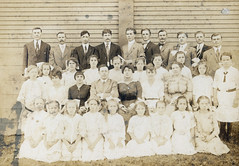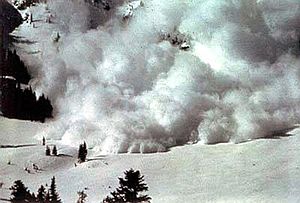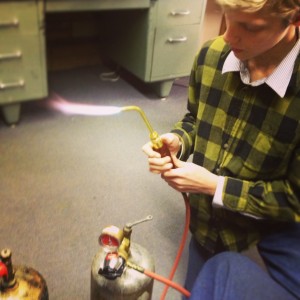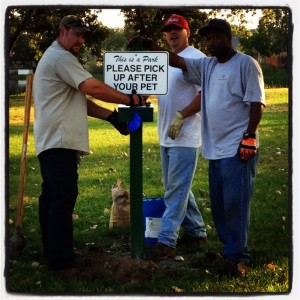A key skill for even the Christian Stay-At-Home-Mom is an ability to trade something of value in the marketplace. Check out this reminder article by VisionaryDaughers.com (the top 10 things girls should study but rarely do) on the art of business worth being developed in daughters who want to be spiritual and who want to know how to efficiently run a household. A great quote from this article is: “In Proverbs 31, even the virtuous woman’s wisdom and kindness are not praised as frequently as her business acumen, industry, and economic profitability, which is why we believe these are some of the most feminine things a Christian woman can study”. This means that a well developed talent in a future homemaker would not be amiss to included some entrepreneurial skills – because a good talent would include not just one household skill, but a combination of several well-chosen skills, with one of them having a value that can be traded in the marketplace.
Tag: showcase
From Pearl to Diamond Daughters

Many do well by raising their daughters to be pearls of great attraction. A few parents will exceed even that by deciding that they will then take their daughters to the diamond level before they graduate from home. I asked my wife what she thought would be ***practical examples*** of what a diamond level girl could do as compared to a pearl level daughter. Here below are some quick examples of what she came up with. Do you notice how the difference would be due to having a development plan for a homemaking talent in place instead of passively acquiring curriculum knowledge?
A daughter who is a “Pearl” is soft, beautiful, and known for her tender luster; she must be careful that the wrong environment does not take advantage of her and crush her.
…but a Diamond is a strong, bright, hard; can handle changes well, but is still beautiful to look at; you can easily delegate to her and she doesn’t wilt in a time of crisis.
Pearl: can put together a nutritious meal together, on time
…but a Diamond could do this: can entertain guests with ease on an hour’s notice using resources on hand
Pearl: can initiate thoughtful handwritten thank-you notes
…but a Diamond could do this: maintain church and family relationships through encouraging and informative newsletters and blogs
Pearl: can make preserves, jams, and jellies for her family from produce picked in her garden
…but a Diamond could do this: coordinate, manage and teach food preservation skills for local food exchange club
Pearl: can sell handmade jewelry at local craft shows
…but a Diamond could do this: carefully research a country-wide market demand for special wool socks and then run an e-bay store targeted to a specific customer group; selling socks whose knitting was outsourced to other homemakers.
Danger: Hard Work Not the Same as Value

Teach your hard working and diligent child how not to confuse quantity of hard work to be the same as the amount of value he is bringing to others through his talent. It is the recipients of his talent who will determine how much of a difference it makes to their lives and not the amount of sheer effort that he has to put into it. This explains why often in the arts, it is original content that is rewarded more highly, even if the performers are less technically proficient than more hard working, school-trained artists. It is also true in other fields like business or mystery-book writing. Talent focused children and their parents must not forget that because people have already seen or heard the same type of Country-Western song so many times, fans would rather now pay for a much more different take on that genre, than to simply add another very accomplished repeat to their collection.
Does Your Child Have a Tag Line for his Talent?

As your child progresses in developing a talent, you can discover more actions he can take by creating a tag line for his talent, just like a business does for the service it provides. A tag line is a summary phrase that is catchy enough to be easily remembered by others and unique enough to describe some specific value being brought to others. So for example, a son with a growing baking and cooking talent, may grow a tag line that reads “baking Asian cuisine for California-fresh palates”. This tag line would help others resonate with him in his aspirations and would create a natural list of next actions that your child should undertake in order to become much better. Who would you think is more likely to be acting on his talent on a daily basis: a child who states that his interest is baking in general or a child that says he is trying to become better today at baking Asian dishes to please American tastes?
Blog with Emotion to Open Doors

At some level of his growth, your child will want to interact more with experts in his field of talent. The problem he can run into is that experts don’t have time to open the door to gawkers and will only tolerate those who are just as seriously committed as they are. How does your child show is he part of the committed ones? He shows it by documenting his performance, over time, through a blog that others can easily check. He also does it by writing in that blog with emotion and inquisitive engagement, and not just facts – that is how he will open up those doors.
Wedding Rhyme Strategy for Joy Miller’s Fivejs.com

Here in a pretty little 17th century wedding rhyme, I give to you a simple strategy for talent building:
Something Old
Something New
Something Borrowed
Something Blue
One Year’s Worth of Talent Essays

Do you have a goal for how often you want your child to practice writing about his talent? It’s not good if your child is currently writing ten little essays or articles on any number of random topics for every one article on his chosen long-term talent. Instead of writing about such things as his latest vacation or a description of his team’s last winning baseball game, what if every one of those essays were replaced by an article describing an activity or principle of his talent? You can continue having your child practice all sorts of writing methods to satisfy outside requirements, but you can apply those methods in the context of your child’s talent. If you re-orient his writing focus, now how many essays do you think he could write up on his talent in one year’s time?
A 2,000 fold Advantage

Part of the power of putting in 10,000 hours of deliberate focus on a talent is that it makes it very hard for those who adopt a talent late in life (such as right after college) to come anywhere close to out-performing those who develop their talent early in their childhood. Consider for example that if a child writes about some aspect of his talent, say WWII history, three times a week from age 10 to age 20, that he would have put in over 2,000 writings well before the average college student has even started on a major that has a similar historical focus. If your child majors in history with a WWII focus, he has already out-thought all the others on that same subject by a 2,000 fold factor! Where others don’t even know they could eventually have a unique voice, your child would come across as amazingly confident, dripping with conceptual and tactical details, and supremely at ease in his already well-developed voice. At that point in time, of all the student portfolios, who do you think a college professor or a prospective employer would rather have a second interview with?
Learn How to Write by Writing About What You Care

Are you worried that your child does not care about what he is writing? You should be, because not caring means he is not learning how to develop a specific voice that others will want to listen to and it means he is not learning to write something useful even in the face of incomplete knowledge. Typical ‘non-caring’ writing will produce high-school research papers that no one but the teacher will read: papers that are lifeless, mechanical, and based on topics that were chosen because they were easy to find in the school library for citation proof. Though there is a place for the mechanics of writing, you should not allow it to be more important than writing for a purpose. As parent of a child developing his talent, you do have a ready solution to the caring problem: insist that your child always connects his essays to an aspect of his talent.
Practice the Art of Stealth in Your Child’s Talent Development

There is also room for practicing the art of stealth, or social prudence, in your child’s talent development. By stealth, I mean avoid putting on display your child’s awkward and early attempts at mastering his talent and do not invite the admiration of friends and relatives. Many well-meaning friends and relatives have the popular, but false view, that any talent worth pursuing must spring full-blown out of your child’s first training of his art or science and, if it doesn’t, you should not pursue it all. This negativity could potentially discourage your child (and you) at too early a stage when you are still mapping out the big talent plan for your child’s life. So word to the wise: until the time is ripe, practice the art of stealth.
Build a New Glory with Your Child’s Talent

Remain flexible as to which sub-skills you encourage your child to accumulate for his developing talent. This flexibility is to make sure your child is creating a talent that brings enough value to others that they would want to pay him to perform his talent. Your child will most likely need a set of skills that is different than what made a previous generation very successful in that same field of human activity. However as parents we can became fixated on a now defunct past glory and inadvertently encourage them to become uselessly excellent in a field that has since become over-abundant with the same ability. Don’t let the glory of a previous generation blind you to the new and better possibilities for your child.
How to Write a Blog When Beginning Talent

How to write when your child is just beginning to blog about his talent development and is not yet an expert:
- Summarize what he read, saw, or heard
- Focus on just ONE main point per blog post
- Insert a personal observation about the main point that has triggered an intellectual curiosity in him or triggered an emotional response
- Keep it short
- Aim for a particular weekly post frequency
Why Your Child Should Blog About His Skill or Talent

Why your child should blog about his skill or talent:
- Others more advanced in the same skill can find him
- Documents he is able to learn that skill
- To learn to write about something that matters to him
- To develop a unique voice in a particular field of expertise
- To connect with other peers with same commitments
- To create a portfolio to open doors to next level of expertise
Child Should Blog to Document His Learning Process

Encourage your child to blog to document his learning process on the subject of his talent. Do not have him limit himself to just the final results and success stories of his talent development. Why should you encourage him to journal his learning in a public way?
There are three reasons to blog:
- Blogging will train him to speak in his own unique voice.
- Blogging will help him be self-aware and take ownership of his own learning path.
- Blogging will show potential mentors in his field of talent that he has the kind of motivation and seriousness that is deserving of their expert attention.
Quick 21 Blog Post Ideas for Child’s Talent
21
Do you want to help your child find blog post ideas related to his talent interest? Grab a pen, sit him down, and ask him for seven questions about his talent that he wish he knew the answer to. Then take each of those questions and turn those into three smaller questions. If he researches and summarizes his finding on each of those questions, he will have content for 21 blog posts. Rinse and repeat for more ideas.
Market Niche for Your Child’s Talent

For the last seven years, “the 30 Day Challenge” has been a free yearly online course that walks you through discovering your business niche that allows you to sell from home over the Internet. The lead host, Ed Dale, is an amazing presenter and the materials are presented in such way that high-school aged students can easily follow along. Why do I recommend that you as a parent sign-up? It will open up your eyes to the amazing opportunities that appear when you have a method for uncovering niches for your child’s talent. This information is online, up-to-date, free and cannot be found even in University classes.
Is Your Child Blogging Correctly?
Imagine you are a river guide on the California Sacramento River. You are considering choosing between one of two teenagers, George and Nathan, to come along as paid part-time help in exchange for being able to study the river up-close.
Who of the two would you choose?
You don’t owe any favors to their parents, so to make up your mind, you take a quick look at their blog using your Smart Phone. So far, so good. They are both building their portfolio online via a blog so that others like you can get a much better feel for their true accomplishments and their drive to succeed. That’s when you notice that each has a VERY different style of writing about their interest.
One has obviously read up on the river and reported back the many scientific facts as discovered by experts. The other instead writes about specific interactions he has had on the river and what he is doing.
You browse their blogs and find the following two sample posts:
George writes: I read up on river on Wikipedia and here is what I found in my research: “The Sacramento River is an important river of Northern and Central California in the United States. The state’s largest river by discharge, it rises in the Klamath Mountains and flows south for over 400 miles (640 km) before reaching Suisun Bay, an arm of San Francisco Bay, and thence thePacific Ocean. The Sacramento drains an area of about 27,500 square miles (71,000 km2) in the northern half of the state, mostly within a region bounded by the Coast Ranges and Sierra Nevada known as the Sacramento Valley. Its extensive watershed also reaches to the volcanic plateaus of Northeastern California. Historically, its watershed has reached farther, as far north as south-central Oregon where the now, primarily, endorheic(closed) Goose Lake rarely experiences southerly outflow into the Pit River, the most northerly tributary of the Sacramento.”
Nathan writes: This is the third morning I went down to the landing at 4AM to watch the river guides take off for the day and to help a few of them load up. I asked permission to take pictures and put them on my public Flickr account. I got the email address of one of the river guides and will email him my best picture because he would like to put it on his business website. I was surprised at how early the guides have to get going in the morning and they told me it’s because they have to get to the best fishing holes before the sun gets up too high and the fish at this time of the year are much further upstream. I took some temperature readings of the river and logged it in my field journal and took a sample of the water so I can study the microbes on the microscope at home. I have a picnic cooler to carry it back home so that the microbes don’t die before I can match them up with this special study guide my dad bought for me on the Internet. I have been able to identify about 10 bugs so far and will post my sketches up with their scientific names.
Which one are you likely to want with you and the customers? Which one do you think is the most interesting boy to have along?
Clearly you want your own child blogging from a first-person point of view like Nathan. And at all costs, you want to avoid him sounding like George, who is stating true expert facts, but revealing nothing of his personal engagement with the river.
Two Reasons Why a Talent Blog is Important for Your Child
 Your child should start at least one blog related to a skill he is developing for his talent.
Your child should start at least one blog related to a skill he is developing for his talent.
There are two reasons why a talent blog is important:
- So your child can learn how to talk in his own voice and personality about his talent.
- So your child can demonstrate to others that he is personally engaged and not just mechanically reciting back a list of facts.
By the way if your child has started a talent blog, please feel free to post the link below so I can leave him his first few encouraging comments.
True Talent Jumps Outside Career Labels
Don’t let your 13 your old child say “I want to develop my veterinary skills.” Instead, for example, have your child say “I want to use my microscope to be able to identify all the most common pathogens as found in the cat and dog droppings in our neighborhood and community. I want to recommend to the pet owners the right off-the-shelf pet prescriptions for the specific problems that I find.”
Here’s why you want to avoid traditional career names in discovering your first talent focus:
- First, you need to stay flexible about what long term career your child might enter into in the future so he can take advantage of a changing market. Your child’s career is most likely not going to be traditional and true talent will tend to jump outside the boundaries of popular career labels.
- Second, your child will most likely be legally or culturally blocked in trying to do anything really resembling the work description of a traditional career. But if you focus on a specific skill to develop, your child can often get around limitations and start developing right away a a skill that can lay the groundwork for the next level of skills.
So That All His Relatives Can Read It and Comment

Example of how a 12 year old boy could write his first blog post:
- Uses his on-going personal interest: his interest is anything related to engineering
- Uses his current curriculum topic: Roman History
- Reads a Wikipedia summary article on a specific Roman bridge: the Pont-du-Gard Aqueduct
- Starts a free blog hosting service: Posterous.com
- Writes a 5-sentence summary in his own words about a specific aspect of that Wikipedia article.
- Makes a one sentence comment in his post, a hook, that is a personal observation on how it is similar to something he knows about today in modern life.
- Creates a blog post title that is copied from one interesting phrase in the blog post.
- Presses “publish” on the blog post he just wrote so that all his relatives can read it and comment to encourage him.


















